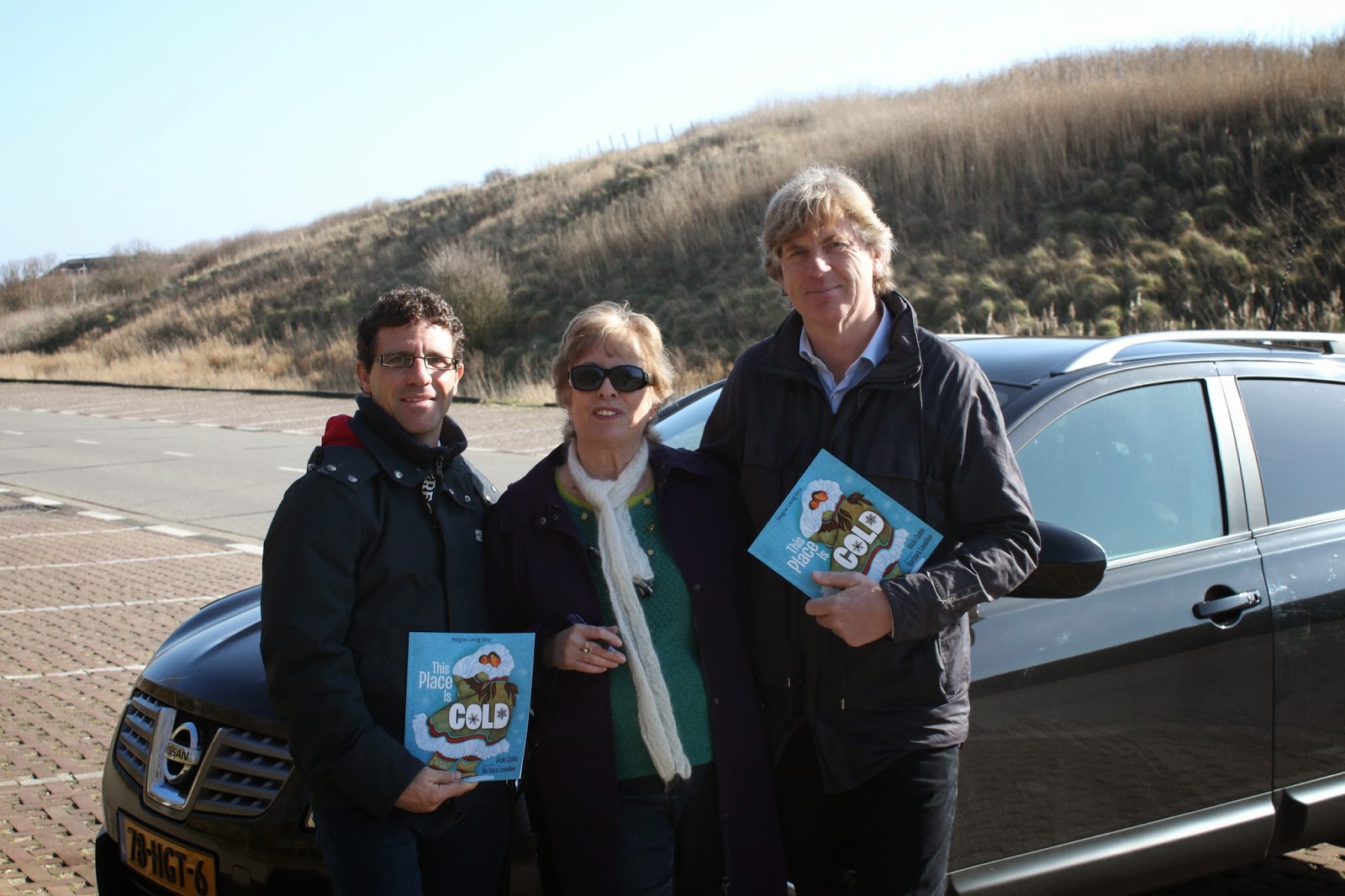The whole idea of traveling is to learn about new places and
new people. You can buy tours where the
itinerary is planned by someone else.
But for me, the best trips are the ones where I start the process that
will create a trip to research a new project.
Make no mistake; it takes time and attention to plan such a trip. This winter I made two trips to research my
next book How Could We Foil a Flood?
I’m particularly interested in the engineering aspect of flood control because more than forty
percent of loss of life and property from natural disasters comes from flooding,
and because we’ve been engineering to prevent flooding for at least 1000
years. Most other natural disasters have
had little to no engineering applied to controlling the phenomenon—we’re
struggling hard enough learning how to predict them.
So the first question I ask, after reading extensively on
the subject, is, who knows about this? It
is always useful to start looking for contact information through tourism or
government sources. So I made contact
with the Mississippi Army Corps of Engineers (ACE) who connected me to the ACE
in New Orleans, where they’re putting the finishing touches on an enormous
post-Katrina resiliency post-flooding project.
(It is no longer politically correct to call it “flood control.”)
 |
| Lexi poses next to the new West Closure Pumping Station --the most powerful pump in the world. It can fill an olympic-sized swimming pool in 5 seconds. |
Next, I contact the tourism people and tell them where I
plan to visit and ask if I can get media rates on accommodations, freebies,
etc. Since New Orleans, a tourism mecca,
was on the itinerary, I was booked into
a great hotel in the French Quarter at an affordable price. My nineteen-year-old granddaughter, Lexi, had
approached me last fall, “Please, please, please Gran, I’ve never been anywhere
or seen anything. Take me with you.” How could I resist that gift? My response,
“Okay, but you’ll have to work. I
need you to listen to all the interviews, take photos and videos, and keep
track of all my contacts.” And so the
deal was struck. It took a good three
months to make the arrangements.
 |
| Here I am in front of some major sluices that keep the North Sea from flooding the lowlands. It was cold and windy with wind turbines everywhere. |
The second trip I made was to the place where they know more
about keeping the sea at bay than any other nation—the Netherlands. Here, a peculiar serendipity (not unusual for these amazing trips) played
a role. Over Thanksgiving my son had new
guests—his wife’s mother’s first cousin from Scotland and her Dutch husband,
Wim—were visiting from Canada. I told Wim I was planning to visit his
country, so he offered the help of his brother Giovanni and his wife, Mechtild,
who lived in the Hague. Giovanni was a
recently retired diplomat with time on his hands. They stepped up and offered me a place to
stay and would drive me to all my venues. In effect, they would do the job Lexi
had done. (I had been planning to take
Lexi along, but she’s in her first year of college/nursing school with a heavy
schedule and prioritized well. She
couldn’t take the time to come. I’m
proud of her for that.)
 |
| I always thank the people I interview with a signed book and an acknowledgment when the new book is published |
The arrangements and schedule of what I’d see and who I’d
interview was done by Arjan Braamskamp of the Dutch Consulate in NYC. It was an amazing, exhausting and rigorous
schedule. I was wished “bon voyage” in
person by Rob de Vos, the Consul General who happens to be a friend of Giovanni
(talk about a small world!)
 |
| My one day to relax was two weeks before the tulips so I settled for tiptoeing through the crocuses in the Hague. |
These trips are like eating dessert first. Now comes the
hard part of sifting through all the material and crafting it into something
new, which will ignite the desire to learn from my readers.

2 comments:
What a great post! I love that you took your granddaughter with you on your research trip. An excellent bonding experience, to be sure. Your post also shows how willing people usually are to help us on our writing/research quests. Kindred spirits really do make it a small world. I look forward to reading the book when it comes out!
When I do school visits I always tell kids to ask their parents and teachers and they will find that there are good and bad things about any job we pick as adults. For nonfiction authors? Bad: irregular paychecks. Good: going on adventures (research trips and learning new stuff.
For me, those trips took me to places I'd never normally go from the Arctic to the Amazon. Loved them all.
Post a Comment